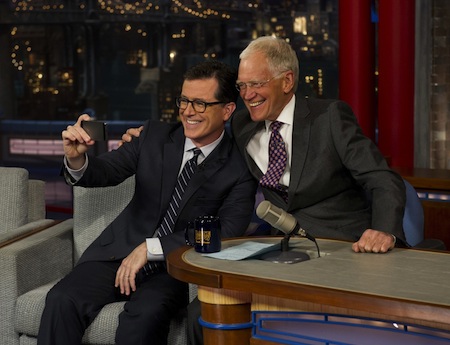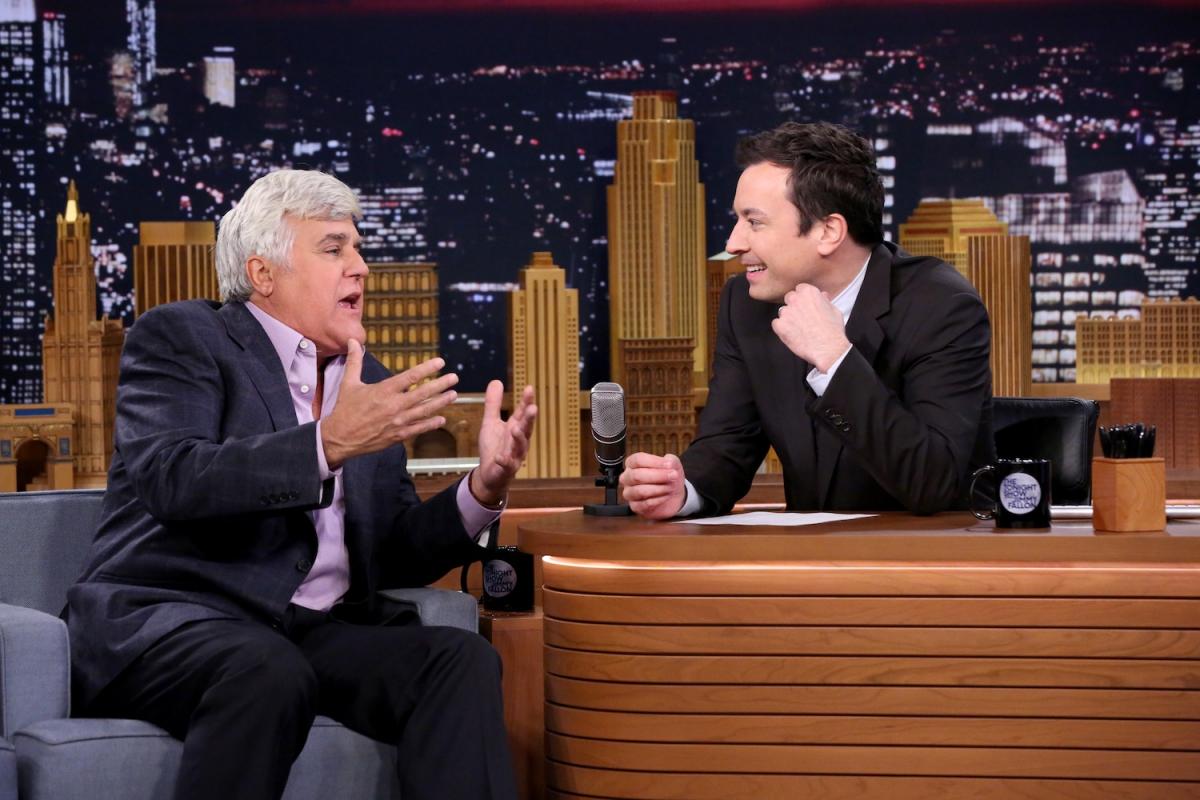'B&C' Hall of Fame: 25 Years of Late Night

As B&C gets set for its 25th Hall of Fame ceremony on Oct. 20 at New York's Waldorf Astoria, we are taking a look back at the many ways the medium of television has changed as a business and as a part of culture. Today's installment: late night.
Late night had been relatively steady prior to 1991, with Steve Allen kicking off the age of late-night TV talk shows in 1954 as host of The Tonight Show—then known as Tonight Starring Steve Allen.
Excepting a brief five-year tenure by Jack Paar on Tonight and occasional challengers like Dick Cavett and Arsenio Hall, late night was ruled by Johnny Carson, an affable Midwesterner with a mysterious off-camera life. The King of Late Night reigned from 1962 to 1992.
The transition from Carson more than two decades ago has informed the rapid and ubiquitous changes of the past few years.
David Letterman, who in 1982 first hosted NBC’s Late Night following Carson, had his sights set on The Tonight Show only to be passed over for Jay Leno.
Letterman, licked his wounds, and moved on to CBS in 1993 where he hosted The Late Show until last May.
With respect to Cavett, Hall and Joan Rivers, Letterman’s Late Show offered the first real and lasting competition to NBC’s late night dominance, which has led to a more fractured and varied late-night landscape.
The smarter way to stay on top of broadcasting and cable industry. Sign up below
The messy take over by Leno as host of The Tonight Show was only a sign of things to come when between 2009-2010 he took on another Late Night host in Conan O’Brien.

O’Brien was to host The Tonight Show while Leno took The Jay Leno Show to 10 p.m. Poor ratings led to a proposed shift of The Tonight Show up a half-hour, but O’Brien was reluctant and left for TBS with Conan.
Just a few years after Letterman’s move to CBS, The Daily Show kicked off another transformation in the late night landscape on Comedy Central.
With the exception of Bill Maher’s Politically Incorrect—which premiered on Comedy Central in 1993 and moved to ABC in 1997, only to be canceled in 2002—The Daily Show offered the first challenge in late night to broadcast’s cultural cachet.
Despite a slow start, the show got rolling as Jon Stewart took over as host in 1999 for Craig Kilborn, who left to take over for Tom Snyder as host of The Late Late Show. The satirical news program thrived during the Bush era and had a spinoff for faux-conservative correspondent Stephen Colbert with The Colbert Report.
The Daily Show’s influence has only grown as its former correspondents have spread throughout late night with their own shows.
Colbert replaced Letterman as host of Late Show in September. This led to former correspondent Larry Wilmore filling his time slot with The Nightly Show.
Another Daily Show alum John Oliver launched Last Week Tonight on HBO to rave reviews, joining Bill Maher’s Real Time. Samantha Bee will look to break up the largely male-dominant scene—joining YouTube star Grace Helbig’s E! late-night talker—with an upcoming show on TBS.
The first shoe to drop in this most recent wave of changes began in 2014 with Jimmy Fallon taking over The Tonight Show and fellow SNL alum Seth Meyers replacing him at Late Night.
Following the news of Letterman’s impending retirement, Englishman James Corden replaced Scot Craig Ferguson in March as host of The Late Late Show.
Even astrophysicist Neil deGrasse Tyson got in on the late-night action with a weekly late-night show on National Geographic—not to even mention Chelsea Handler’s upcoming talk show on Netflix.
The last major shake-up was Jon Stewart’s hand-off of The Daily Show to Trevor Noah, who debuted in September.
One trend to note in all of these changes is the diminishing importance of the monologue. Though in no danger of disappearing, it isn’t the highlight of the viral-obsessed shows of today.
Jimmy Kimmel (Jimmy Kimmel Live!) and Fallon certainly do monologues, but the talk of the following day is often of their viral celebrity clips or games, speaking to the time-shifted nature of TV.
Seth Meyers in the past few months has switched from a stand-up monologue to sitting down like his old job at Weekend Update on SNL.
And now to take a moment to say goodbye to Arsenio Hall’s comeback, George Lopez on TBS, his even more short-lived replacement Pete Holmes, and W. Kamau Bell and Russell Brand on FX, all of whom have come and gone in the past few years.
